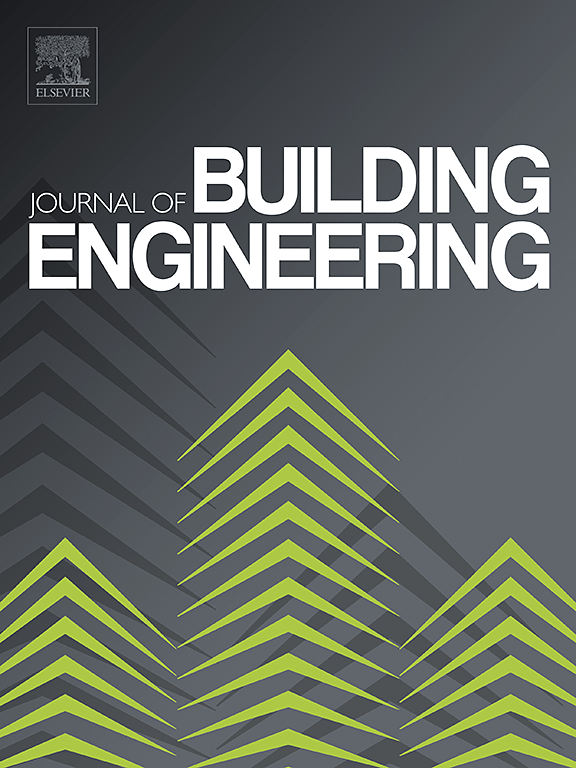使用模糊DEMATEL方法评估建筑绩效指标:比较早期职业和中期专家的观点
IF 7.4
2区 工程技术
Q1 CONSTRUCTION & BUILDING TECHNOLOGY
引用次数: 0
摘要
评估建筑能源性能需要一个系统的方法来识别和评估影响整体性能的关键变量。本研究运用模糊DEMATEL多准则决策(MCDM)技术,考察能源、结构、系统、使用和室外城市环境对建筑效率的相互关系和影响。一份调查分发给了工程、学术和研究等领域的49名从业人员,根据他们多年的经验,将他们分为职业生涯早期和中期专家组。该方法包括根据重要性和作为中心变量、有影响变量、决定变量或独立变量的净影响,对五个主要子标准下的26个子指标进行评估和分类。进行敏感性分析以探索权重变化如何影响整体性能,识别对能效影响较大的变量。此外,主观加权衡量感知的重要性,为绩效评估产生一个排名框架。结果表明,系统(24.47%)和能源(23.85%)是中层专家最重要的子标准,而使用(14.24%)和室外环境(14.29%)是最不受重视的子标准。中级专家从业者关注的是系统和结构效率,而早期职业人士的观点更广泛,但目标更少。该方法提供了一个结构化和标准化的框架,支持更准确、平衡和数据知情的评估,在现场能源评估中尤其有价值。该研究为开发专业知识敏感的评估工具提供了实际成果,并通过将绩效评估与从业者经验相结合,为设计优先级提供了信息。本文章由计算机程序翻译,如有差异,请以英文原文为准。
Assessment of building performance indicators using fuzzy DEMATEL approach: Comparing early-career and mid-expert perspectives
Assessing building energy performance necessitates a systematic methodology to identify and evaluate critical variables affecting overall performance. This research applies the Fuzzy DEMATEL multi-criteria decision-making (MCDM) technique to examine the interrelationships and influence of energy, structure, systems, usage, and outdoor urban environment on building efficiency. A survey was distributed to 49 practitioners in fields such as engineering, academia, and research, categorized into early-career and mid-expert groups based on their years of experience. The approach involved evaluating and classifying 26 sub-indicators under five main sub-criteria by their significance and net influence as central, impactful, determinant, or independent variables. Sensitivity analysis was conducted to explore how weight changes affect global performance, identifying variables with high influence on energy efficiency. Additionally, subjective weighting measured perceived importance, producing a ranked framework for performance evaluation. Results show that systems (24.47 %) and energy (23.85 %) are the most significant sub-criteria for mid-experts, while usage (14.24 %) and outdoor environment (14.29 %) are the least emphasized. Mid-expert practitioners focus on systemic and structural efficiency, whereas early-career professionals adopt a broader but less targeted view. This methodology offers a structured and standardized framework, supporting more accurate, balanced, and data-informed evaluations, particularly valuable during on-site energy assessments. The study offers practical outcomes for developing expertise-sensitive assessment tools and informing design priorities by aligning performance evaluations with practitioner experience.
求助全文
通过发布文献求助,成功后即可免费获取论文全文。
去求助
来源期刊

Journal of building engineering
Engineering-Civil and Structural Engineering
CiteScore
10.00
自引率
12.50%
发文量
1901
审稿时长
35 days
期刊介绍:
The Journal of Building Engineering is an interdisciplinary journal that covers all aspects of science and technology concerned with the whole life cycle of the built environment; from the design phase through to construction, operation, performance, maintenance and its deterioration.
 求助内容:
求助内容: 应助结果提醒方式:
应助结果提醒方式:


